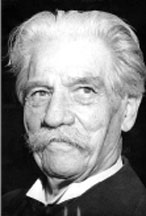Writing demands total commitment
 I try only to write
clearly, and I have the very good fortune to think clearly so that the
writing comes out as I think, in satisfactory shape. I try only to write
clearly, and I have the very good fortune to think clearly so that the
writing comes out as I think, in satisfactory shape.
-
Isaac Asimov
Most of us speak to the point and clearly. However, when it comes to
writing, we fumble for words, expressions, idioms and grammar. Many
teachers are baffled by this unfortunate situation their students are
placed in.
According to some educationalists, our inability to write clearly
stems from the prime weakness of education which does not pay much
attention to develop the communication skills of students. If you look
at it from a readerís point of view, it is less a matter of vocabulary
range than of vocabulary control. The whole process of organising
thoughts for communication has to be revolutionised.
Some students and even adults possess a good vocabulary and grasp of
grammar. However, they do not know how to organise their thoughts and
present them in a logical order. When words are thrown about at random,
the reader gets confused. Some writers have the habit of introducing
sudden thoughts, interrupting the flow of the narrative. When this
happens, the whole writing becomes a mass of meaningless sentences.
|

Dr Albert Schweitzer: My correspondence is killing me... I like
to hear from people, but I donít really know what they are
trying to say. |
For gifted writers, writing comes naturally without much effort.
However, most of us are not born with writing skills. Today, writing can
be learned in the classroom. If your contributions to a newspaper and
magazine are constantly rejected, that is a sign that you should hone
your writing skills.
Topic sentence
Editors sometimes rack their brains to find the topic sentence of a
given paragraph because they are mostly verbose essays. Some beginners
fail to complete their sentences and editors are appalled by the
sprawling and fragmented character of the manuscript. Even when they
write complete sentences, the central ideas emerge as from a deep mist.
To a great extent, written communication has been a pathetic failure.
Recent medical research indicates that certain maladies such as
arthritis, high blood pressure and stress are directly related to the
intense frustration experienced by those who have to read and rewrite
what others write. It is a tragedy that some writers never wish to
improve their writing skills, expecting editors and others to polish
their writing. Unfortunately, such writers do not realise that there is
no excuse for blurring and meandering in their communication.
Dr Albert Schweitzer, at the age of 84, spent most of his time
struggling with his correspondence. He received letters from his
patients, hospital workers, readers of his books and admirers. One day
he confessed, ďMy correspondence is killing me... I like to hear from
people, but I donít really know what they are trying to say.Ē
Primary duty
Our schools have the primary duty to provide an environment conducive
to the development of writing skills. However, it is doubtful whether we
have competent teachers to train the young in clear writing. In most
schools, students are compelled to write essays. However, most of them
cannot write even a paragraph without violating grammatical rules. Clear
writing requires time and sustained sequential thoughts.
Present day schools find it difficult to train students in writing
mostly because of the top-heavy curriculum. Even a trained teacher does
not find the time to make students write clearly because of the time
constraints. It is true that we cannot ignore the other subjects simply
to impart writing skills. However, writing skills are necessary even for
other subjects. Today, students are forced into a strategy of
intellectual merchandising and packaging. So, we cannot expect good
English writers to come up in the present set-up.
No matter what you learn at school, a keen student can still hone his
writing skills. This can be done through self studies. The eminent
author Martin Wickramasinghe became a fine writer by dint of hard work.
He did not study at any university or follow writing courses. He had the
will to become a good writer and he achieved his goal.
Effective communication
If you do not make an attempt to learn how to write clearly,
effective communication will soon be a thing of the past. Clear writing
cannot be learnt by studying other subjects in the English medium. If
anyone wants to be a writer, they have to learn it the hard way. That is
the only royal road to be a successful writer.
Unlike the spoken word, the written word is one of the most powerful
forces available to humans. It can carry ideas and information to
entertain, distract and change the lives of the people. However, there
is no easy, quick or simple formula to become an effective writer. In
the past, students had to write paragraphs on simple topics, adhering to
grammatical rules. Outside the classroom, they wrote to foreign pen-pals
describing how they spent their vacation. They also maintained diaries
using simple English. All such practices seem to have gone with the
wind!
Although writing is fun, exciting and rewarding, it is hard work. It
is no longer a secret that writing demands total commitment. For
instance, we cannot do anything else while we are writing. To put it
very succinctly, good writing is clear, concise, simple and to the
point. It transmits ideas, information and even feelings to the reader
without overstatement. Good writing is also modest because it does not
draw attention to the writerís intelligence or academic qualifications. |

